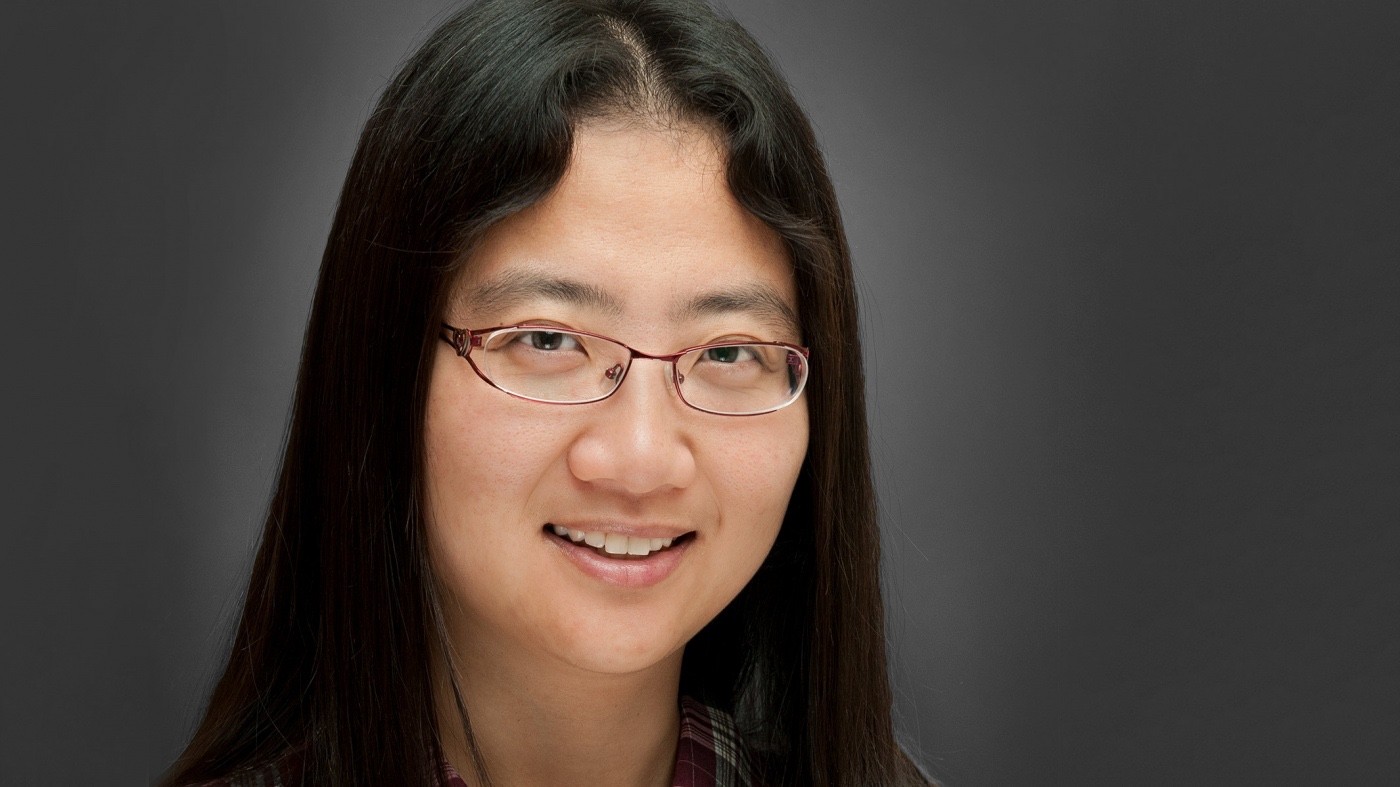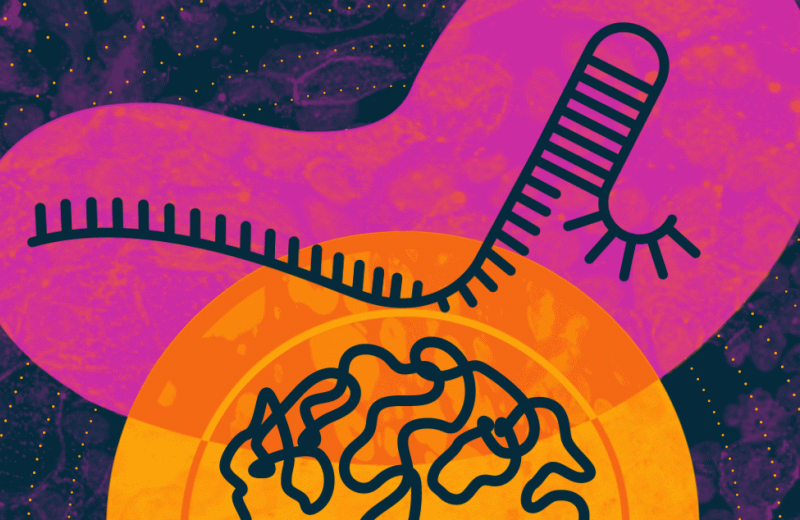
Li Qian was awarded the first Boyalife, Science & Science Translational Medicine Award in Stem Cells and Regenerative Medicine for her work with Deepak Srivastava on reprogramming cells in the heart to help treat heart disease. [Photo: Chris Goodfellow, Gladstone Institutes]
Heart disease patients are closer to a cure thanks to cutting-edge research by stem cell biologist and Gladstone alumna Li Qian, PhD.
Qian was awarded the inaugural Boyalife, Science & Science Translational Medicine Award in Stem Cells and Regenerative Medicine. Her winning essay in Science, “Hope for the Brokenhearted,” explains how cellular reprogramming has greatly enhanced the study of stem cells and regenerative medicine. Qian, who is now an assistant professor of pathology and laboratory medicine at the University of North Carolina, Chapel Hill, was selected from more than 50 applicants from 19 countries.
“I am so proud of her,” said Qian’s former mentor, director of the Gladstone Institute of Cardiovascular Disease, Deepak Srivastava, MD. “Nothing makes me happier than seeing the ‘offspring’ of my lab succeeding and independently advancing our field in significant ways.”
Qian’s paper was partially based on her work in Srivastava’s lab at Gladstone. In experiments with mice that had experienced a heart attack, Qian and Srivastava delivered three genes directly into the damaged region of the heart. These genes normally guide embryonic heart development; however, in the adult mice hearts, they helped transform non-beating cells that form scar tissue into beating heart muscle cells. Within three months, the mice’s hearts were beating stronger and pumping more blood. The results of their work were published in Nature in 2012.
This research builds on the ground-breaking cell reprogramming work of their Gladstone colleague, Shinya Yamanaka, MD, PhD. Yamanaka's 2006 discovery of induced pluripotent stem cells won him the 2012 Nobel Prize in Medicine or Physiology. In 2010, Srivastava and a former postdoctoral fellow, Masaki Ieda, PhD, expanded on that breakthrough with direct reprogramming in a dish, which allows scientists to transform one adult cell type into another without first reverting back to a stem cell state. Qian and Srivastava advanced the field further by reprogramming cells directly in a damaged heart, regenerating the organ using its own cells.
This research solves two problems. First, it does not require transplantation of cells into the heart, an approach that has had problems with cell survival and integration. Second, regenerating cells in the heart without first creating stem cells may reduce potential safety risks, such as cancer.
“These findings could have a significant impact on patients with heart failure, whose damaged hearts make it difficult for them to engage in normal activities like walking up a flight of stairs,” said Qian. “This research may result in a much-needed alternative to heart transplants, for which donors are extremely limited. And because we are reprogramming cells directly in the heart, the cells are already exactly where they need to be.”
Qian continues her research on developing new ways to regenerate or repair an injured heart. In her own lab, she has discovered barriers to direct reprogramming that, when broken down, enhance the conversion of one cell type to another. Her goal is to understand the molecular basis of how cells become different kinds of heart cells and apply this knowledge to improve the efficiency and clinical applicability of cellular reprogramming in heart disease.
Qian earned an undergraduate degree at Fudan University in Shanghai and a PhD from the University of Michigan. At Gladstone, she was a Roddenberry Stem Cell Biology and Regenerative Medicine Scholar and a California Institute for Regenerative Medicine Scholar. In 2012, she joined the faculty of the University of North Carolina.
Gladstone Team Uncovers Why Maternal Diabetes Predisposes Babies to Heart Defects
Gladstone Team Uncovers Why Maternal Diabetes Predisposes Babies to Heart Defects
The cutting-edge research methods that led to the discovery could be used to find other connections between environmental factors and birth defects.
News Release Research (Publication) Cardiovascular Disease Srivastava LabAmerican Heart Association Honors Gladstone President Deepak Srivastava with Distinguished Scientist Award
American Heart Association Honors Gladstone President Deepak Srivastava with Distinguished Scientist Award
The award recognizes leaders who have made major contributions to the fields of cardiovascular and stroke science
Awards News Release Cardiovascular Disease Srivastava LabWhen Two Disruptive Technologies Converge
When Two Disruptive Technologies Converge
How gene editing and stem cells are working in tandem at Gladstone Institutes to change science and medicine
Deep Dive Stem Cells/iPSCs CRISPR/Gene Editing Srivastava Lab Yamanaka Lab Doudna Lab Conklin Lab Marson Lab Huang Lab Ott Lab



